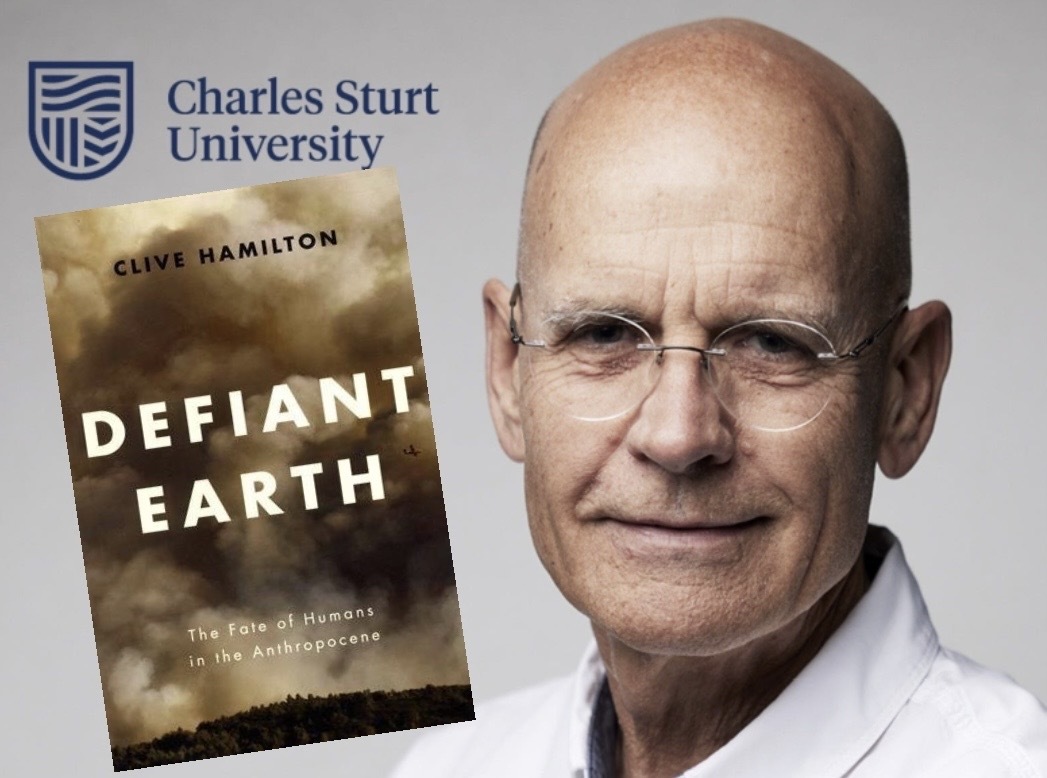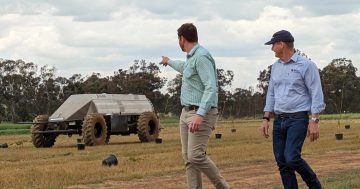
CSU Professor Clive Hamilton is in Wagga to discuss the fate of humanity. Photo: Supplied.
With wave after wave of ”unprecedented” weather events battering our continent, CSU Professor, author and provocateur Clive Hamilton believes we need to face up to the fact that Earth is ”defying” us.
“If we just look at the data, these statistics that the climatologists and meteorologists have been collecting for Australia, they are quite confident that the frequency and intensity of certain extreme weather events including floods in southeastern Australia, have been increasing, and will continue to increase,” he said.
Professor Hamilton will be at CSU’s Wagga campus tonight (Tuesday, 8 November) to speak about his latest book, Defiant Earth: The Fate of Humans in the Anthropocene.
He explained that the ”Anthropocene” is a new geological epoch, which the world’s leading Earth scientists believe began after World War II.
“They argue that human impact on the global environment, particularly changing the climate, has become so extensive and deep that we have actually bounced the Earth into a new geological epoch, which follows on from the Holocene,” Professor Hamilton said.
“To have actually changed the way the planet as a whole functions is an earthshaking development and one which is extremely worrying.”
He pointed to the rising sea levels and increasingly devastating fires, floods and ferocious storms as examples of the ways the Earth is defying human efforts to pacify and control it.
“On the one hand, humans are vastly more powerful than we’ve ever been, but on the other hand, we’re seeing that there’s no way we can control or master the Earth, and its various components are starting to behave in increasingly violent and difficult ways,” he explained.
“We’ve always attempted to shape and control the landscape of Australia, but now, partly as a result of that changing landscape, we see the increasing droughts and hot days that are creating the conditions for these terrible, terrible fires.
“We might see this as our inability to pacify a defiant Earth.”
Professor Hamilton explained that the days of questioning man-made climate change and thinking of environmental issues in terms of a political culture war need to be put behind us.
“Some people say we shouldn’t call it global warming, we should call it global weirding, because the weather around the world is becoming really quite weird in ways that are unprecedented,” he said.
“I think there’s been a really big shift in public attitudes over the last four or five years, and I think that was reflected in the last federal election results and the fact that state governments, even conservative ones, are now very committed to strong emissions-reduction policies.”
When asked whether he thought it was too late to reverse the damage, he said it was more a case of damage control.
“There’s no way now that we can turn back the geological clock, so the question we face is, ‘how bad is it going to get?’ and there’s still uncertainty there,” he said.
“If we don’t take stronger measures to cut global emissions, we might cross a tipping point or two in the Earth’s system which might see us cascading off into a hot Earth that we can do nothing about.”
While global debates about carbon emissions and warming oceans can seem a world away, Professor Hamilton said we shouldn’t underestimate our ability to influence our leaders to make positive change that will make a global impact.
“I’m sure the average citizen of Wagga understands that they can’t escape climate change. It’s coming after all of us. So the question becomes, ‘what do we do about it?’,” he said.
“We have to think about ourselves not just as individual consumers who might buy an electric car or put solar panels on our roofs – all of which are good, but taken alone are not going to fix the problem.
“We need to think of ourselves as engaged citizens in a society where politics can make radical change by passing laws and subsidising more effective energy systems.
“We should be politically engaged and be demanding of our political leaders, and our local politicians, that they do more or take it a lot further.”
Professor Hamilton will be at CSU Wagga tonight from 6 o’clock.
You can learn more about the event or register for tickets here, or tune in to watch the livestream here.








